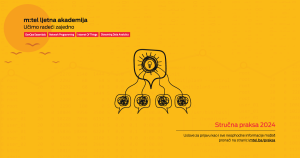SARAJEVO, April 27 (FENA) – Growth in Albania, Bosnia and Herzegovina, Kosovo, Montenegro, North Macedonia, and Serbia – the six countries of the Western Balkans – is expected to return in 2021, in the wake of the region’s worst economic downturn on record during 2020.
Following the economic devastation brought on by the COVID-19 pandemic that resulted in an estimated contraction of growth in the region of 3.4 percent last year, the Western Balkans region is expected to grow by 4.4 percent in 2021. Going forward, growth is expected to moderate to 3.7 in 2022 and 2023, with lingering damage from the pandemic continuing to depress investments and employment in the region, according to the latest Western Balkans Regular Economic Report.
Bosnia and Herzegovina (BiH) slipped into the worst recession in 25 years in 2020, when its economic growth contracted by 4.3 percent mainly because of the increased number of new COVID-19 cases, drop in consumption, investments, and demand from abroad. While we expect economic growth in BiH to reach 2.8 percent in 2021, the timing and pace of recovery is highly uncertain, the report notes.
“We know that there is a lot that can and should be done now to reduce the vulnerabilities that the crisis has highlighted – such as deficiencies in the health and education sectors and the business environment”, says Emanuel Salinas, World Bank Country Manager for Bosnia and Herzegovina and Montenegro. “Now is the time to work not only on recovery from this crisis, but on developing long-term solutions that will build a more resilient, inclusive economy in the post-pandemic era.
The report calls on BiH to continue a reform path that addresses long-standing issues – the entrenched structural and institutional problems. BiH needs to unleash the potential of the private sector and reduce the large footprint of the public sector while making international integration a priority through investments and exports.
“We are certainly seeing some positive trends around the region, boosted by swift action taken by many countries to contain the worst impacts of the pandemic, but the health and economic devastation of the pandemic will continue to have an impact, ” says Linda Van Gelder, World Bank Regional Director for the Western Balkans. “The introduction of vaccines, coupled with improvements in confidence, consumption, and trade, will also help keep this momentum going, but countries must remain vigilant in their efforts to introduce and reinforce policies that can lead to growth, protect health outcomes, and boost human capital.”
The pandemic halted a decade of progress in boosting incomes and reducing poverty in the countries of the region and labor markets in the Western Balkans have recovered just half of their pandemic losses – leaving large numbers of people unemployed and forcing many others to drop out of the labor market altogether. Although the unemployment rate declined - from 13.5 percent in 2019 to 12.6 percent in 2020 - this was primarily the result of increased inactivity, with overall job losses around the Western Balkans reaching nearly 70,000 by the end of 2020. Furthermore, these losses disproportionately impacted the more vulnerable populations in the region, including, women and youth - with the youth unemployment rate rising to 33.6 percent in 2020, disrupting a five-year trend of decline.
According to the report, policy efforts in the region need to stay tightly focused on fighting the pandemic, limiting social damage, and nurturing recovery. All countries should ensure that their health care systems are adequately resourced for vaccine purchase and distribution, testing, therapies, personal protective equipment, and upgrading and maintain health care facilities. Investments in education, digitalization and other infrastructure projects, and green initiatives should also be prioritized, as they can accelerate the necessary transition to lower carbon dependence as countries emerge from the pandemic, it is stated in the World Bank report.
(FENA) S. R.









